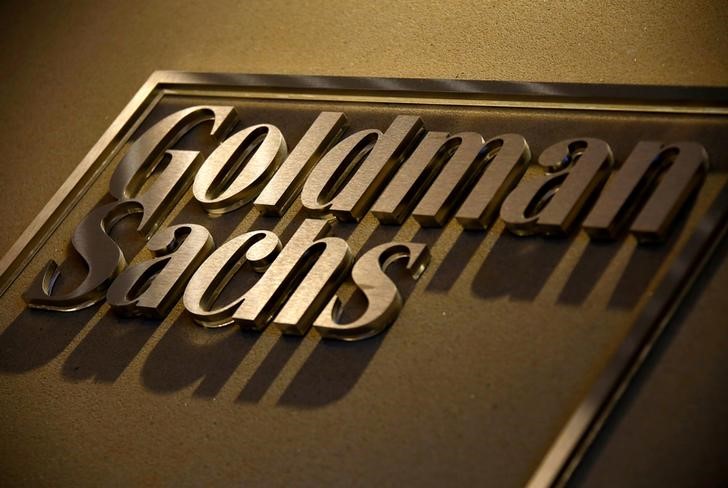Quiver Quantitative - Goldman Sachs (NYSE:GS) reported a surge in profits, largely driven by a significant jump in equity-trading revenue, far exceeding analysts' expectations. This performance marked a positive turn in what the company described as a year of transition. The asset and wealth division played a pivotal role, achieving its highest quarterly revenue in two years, buoyed by gains from the sale of a financial-management business. These results provided a counterbalance to less impressive performances in fixed-income trading and investment-banking fees, which fell below anticipated levels.
CEO David Solomon characterized 2023 as a year of execution for Goldman Sachs, focusing on a refined and simplified strategy to build a stronger foundation for 2024. The firm is navigating a challenging landscape marked by depressed dealmaking and losses in real estate investments and consumer business. Goldman Sachs, traditionally more dependent on dealmaking than other major banks, is looking to a revival in private equity as a key to overcoming the slowdown in its business. The firm’s focus is now shifting back towards its core Wall Street operations and aspirations in money management, moving away from underperforming sectors.
Market Overview: -Goldman Sachs soared past analyst expectations with a triple-digit surge in equity-trading revenue, capping off a successful year of strategic transition. -Asset-management revenue climbed on the back of a strategic sale, offsetting weaknesses in fixed-income and investment banking. -CEO David Solomon expressed confidence in the bank's simplified strategy and strong platform for 2024.
Key Points: -Equities revenue jumped 26% compared to expectations, solidifying Goldman's leadership in that business. -Asset and wealth management revenue hit a two-year high, driven by management fees and a record $2.81 trillion in assets under supervision. -Fixed-income and investment banking revenues fell short of estimates, though deal announcements offer hope for future revival. -Goldman continues to reduce riskier principal bets and focus on fee-generating businesses like wealth management.
Looking Ahead: -Can Goldman sustain its equity-trading dominance? -Will a rebound in dealmaking boost investment banking fees? -How will the bank navigate uncertainties in fixed-income markets?
In terms of specific financial results, the equities unit outperformed expectations significantly, generating $2.61 billion in revenue – a 26% increase, compared to the anticipated 8%. This success not only highlights Goldman Sachs’ dominance in the equities business but also establishes a notable lead over its closest competitor, Morgan Stanley (NYSE:MS). Despite these achievements, Goldman Sachs shares saw a slight decline in early trading, contrasting with the bank’s overall 12% gain in 2023. The firm reported net income of $2.01 billion, or $5.48 per share, on $11.3 billion in revenue for the fourth quarter, marking a 51% increase from the previous year.
The asset- and wealth-management business posted a 23% increase in revenue, reaching $4.39 billion, with management fees contributing significantly. Goldman Sachs has reduced its principal bets to $16.3 billion, aligning with its targeted reduction. The firm has also exceeded its targets in raising funds from investors, with $251 billion accumulated in alternatives. Despite these successes, the fixed-income trading and investment-banking sectors underperformed, with lower revenues from rates and currencies and investment-banking fees falling short of analysts' estimates. The bank is also working towards exiting its credit-card partnerships with Apple (NASDAQ:AAPL) and General Motors (NYSE:GM) Additionally, Goldman Sachs included a $529 million charge in its results related to the collapses of Silicon Valley Bank and Signature Bank.
This article was originally published on Quiver Quantitative
